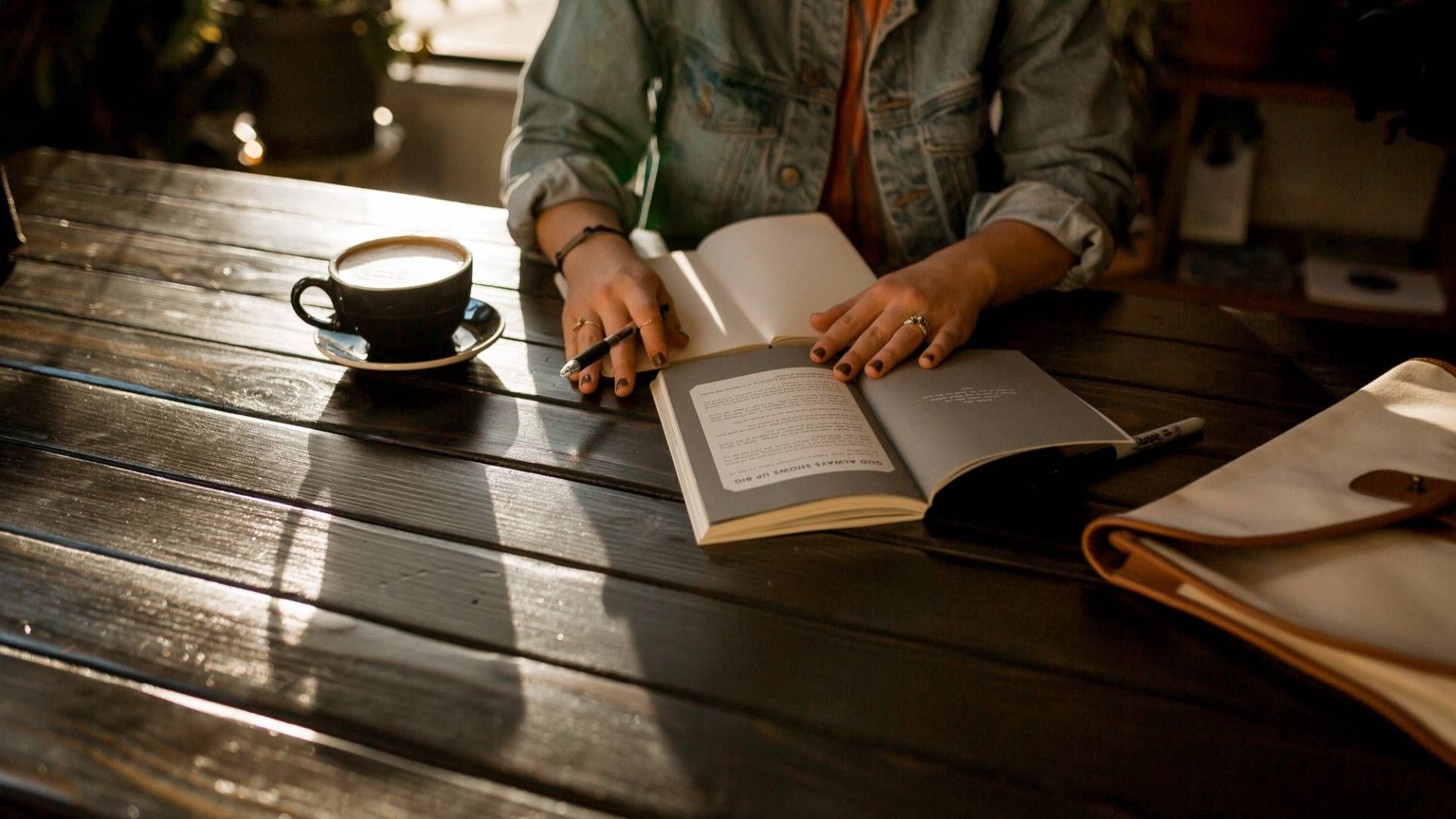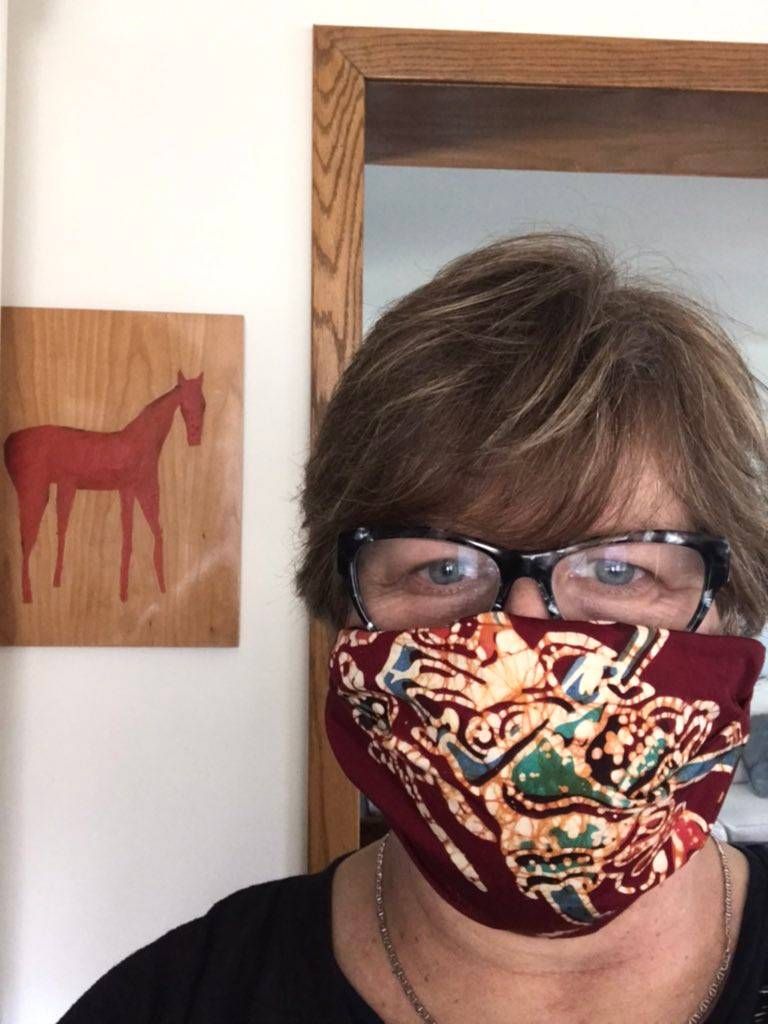To Write Is to Cope - Especially During a Pandemic

Good morning. Tuesday, September 22 was the fall equinox - our first official day of fall. We can all say a fond or fierce farewell to Summer 2020. Many of us call it our “lost summer” - a season spent in isolation at home, or in brief masked dashes for curbside delivery and grocery store runs. Many others more directly impacted by the scourge of COVID-19 refer to it more precisely as our summer of loss. Loss of jobs, loss of human touch, loss of lives.
Back in March - March 13, to be precise - staff at TPT were sent home to begin working remotely. It’s remarkable how we have coped, made our situation work for both live TV shows and field work on documentary productions, following COVID-19 safety protocols and utilizing video technology for internal meetings and live programs, like Almanac.

The marking of time this summer has seemed a bit like what I felt as a parent of young children: The days are long, but the months are short. And like those first six months with a newborn, days in this pandemic have been up or down, especially at the beginning when adrenaline was high and we felt almost heroic in getting our work out to audiences. And then in the summer months of July and August, many of us fell into our stride in the “new normal,” tweaking our home offices to work better, setting up more structure in our daily schedules, venturing out for socially safe small picnics or backyard happy hours.
But now it is autumn, and we have a wary eye on winter, at least here in Minnesota. A new kind of anxiety is provoked: How severe will the flu season be and what will being indoors even more do for our physical and mental health? How will we cope?
One of the ways I have coped is to maintain my daily writing practice, usually each morning before work. I write in long-hand in a journal, noting always both a highlight of the day before and my feelings about the day ahead. And I use my Twitter postings as a way to mark the present—my thoughts and feelings as they are in real time. Twin Cities PBS Producer Luke Heikkila wrote back in the spring, “Today is an important day in your history. Record it.” And so I have. And like it was for me as a new mom, the marking of time through writing is both salve for the moment and a gift for my future self.
March 21: 115 or so COVID-19 identified cases in MN, 8 hospitalized, 1 death. Lucille [my mother-in-law who lives in assisted living] is now having all her meals delivered to her room.
March 25: It is 10:30 am and the neighborhood is really quiet: no school buses, no morning work traffic. Really the most traffic I see are the FedEx and Amazon trucks making deliveries for all of us staying home in the outbreak. I ordered latex gloves and a pair of safety glasses for the house.
By writing I am able to document the ways my family and I have reacted and coped with the changing news. In March, we were very concerned about the 20-second hand wash and whether we would ever find hand sanitizer. We were lucky to be able to work remotely from home, but both our adult children were out in the field, taking precautions but interacting with the public. They have not contracted the coronavirus, but some of our other family members have. We haven’t lost loved ones, but some of our neighbors have.
May 27: I am so uptight I can hardly unwind. Much less rest. What is next? What is coming? I am so sad and so tired I need to lie down and close my eyes, rest my body and head. Working hard when there is so much grief about the murder of George Floyd and the uncertainty of the pandemic - it is what I do, what so many of us do. - But feel so depleted!
June 13: It made me really happy to just finish the work day, crawl into a hot bath and settle into bed early with a new season of Call My Agent to watch on Netflix.
August 16: I was so glad to have a long conversation with my mom after some weeks of not connecting so well.
August 18: Jane Brody wrote a great piece about the benefit of talking to strangers, and I feel that has been a lifeline for me in my life of socially distancing. I take pleasure in small conversations with Veda the clerk at Oxendale’s grocery; with Sharon, the neighbor a few blocks away who walks by our porch daily; and my kindly mailman, whose name I don’t even know. We keep our distance, and in some instances, wear masks, and we still find ways to connect.
September 12: The wildfires out West, the hurricanes in the South, my parents’ loneliness and vulnerability in South Texas, and the continuing racial injustices. I leave the house in the middle of the day to have a good old-fashioned food cry. I order a medium French fry from the drive-through at McDonald’s and take it down to the Mississippi River Boulevard to have time alone. It is one version of self-care - even with the empty calories.
September 22: The end of summer. A morning of happy. I got out for a long bike ride before work. The sun was out and the leaves by the river are changing. A few others were out biking, riding, taking babies out in strollers. I hope I can keep riding well into October.

And so here we are as the fall courses on. There are many days ahead of us as we individually and collectively shore ourselves up to manage the next phase of this pandemic. Writing is a powerful tool: For me, I can sometimes see my emotions more clearly on the page than I can in my own body. When I chronicle my day-to-day experiences, I can synthesize my needs from what I express there. I can be a better caregiver and employee when I understand myself and my world better.
If words aren’t your preferred way of documenting your life, then follow artist Mary Jo Hoffman’s advice: Try creating a visual journal. In her case, that means collecting natural elements from the outdoors and assembling them into collages. For her, the journals are “not precious, they’re little libraries of material I can refer to.”
Between a pandemic, killer bees and global protests over racism-fueled police brutality, 2020 has been one for the record books – and Minneapolis artist Keith Pille has found a way to cope: He spends 30 minutes every day sketching a single cartoon cell that he shares on Twitter. His inspiration? A police blotter in Iowa City. Read all about it.
When news of the coronavirus became more worrisome, Tia Keobounpheng picked up a pen. A jewelry artist by trade, Keobounpheng returned to a simple form of expression when she needed to calm herself – drawing. And now she creates coloring sheets for others to download for free or for a small donation.
